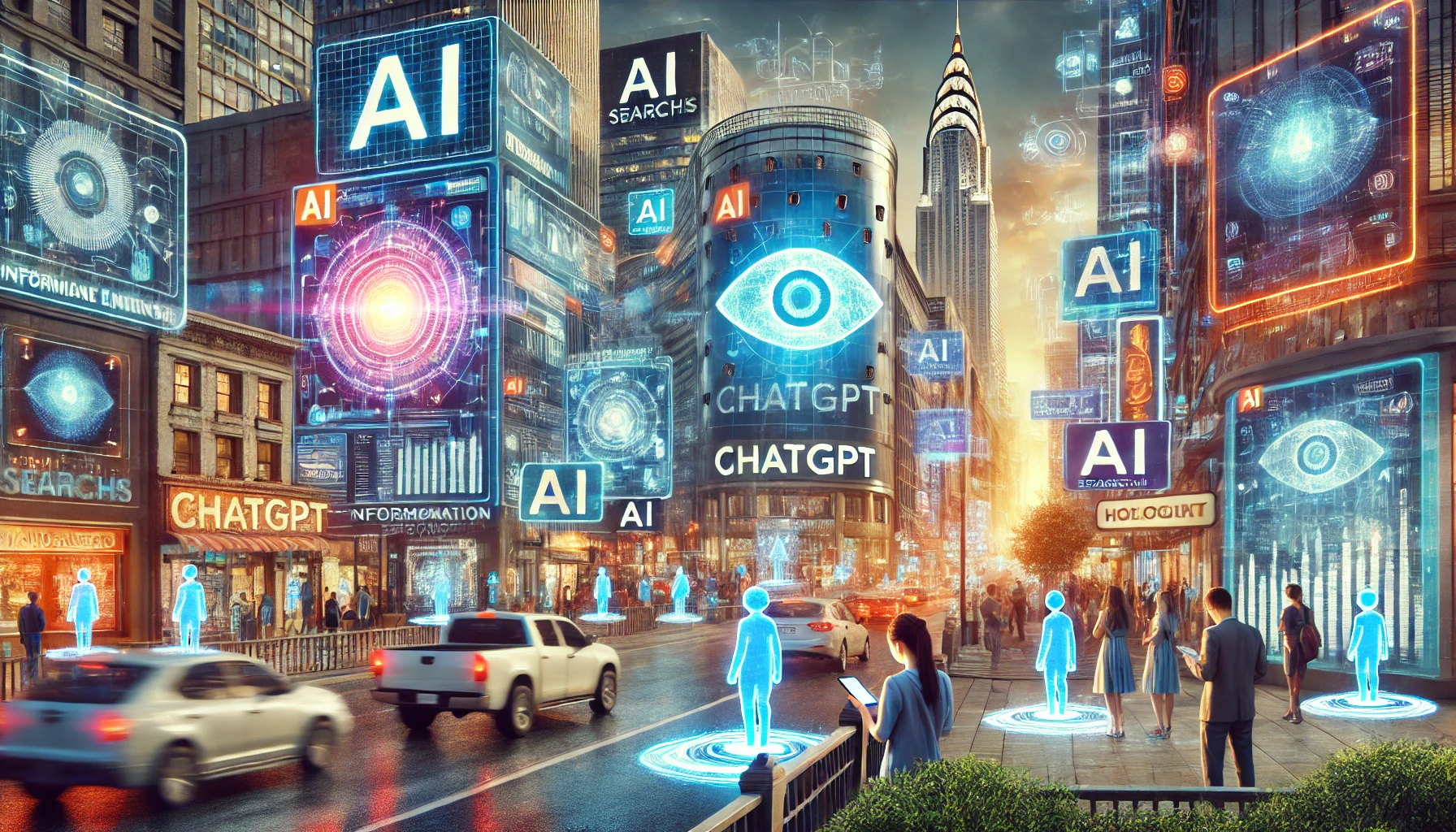The digital landscape is continuously evolving, and with the advent of advanced AI technologies like ChatGPT, the way we approach information retrieval is on the brink of a significant transformation. Imagine a world where ChatGPT and similar AI models become the primary tools for obtaining information, potentially rendering traditional search engines obsolete. This shift would not only revolutionize how users find information but also fundamentally change the landscape of Search Engine Optimization (SEO). In this blog, we will explore the implications of such a scenario, the challenges it presents, and the potential strategies for navigating this new SEO frontier.
Introduction to the Evolution of Search Engines
Search engines have been the cornerstone of the internet, shaping the way we access information. From the early days of AltaVista to the dominance of Google, search engines have evolved to provide increasingly sophisticated and accurate results. However, the rise of AI technologies, particularly natural language processing models like ChatGPT, has introduced a new paradigm in information retrieval.
Understanding ChatGPT and Its Impact on Information Retrieval
ChatGPT, developed by OpenAI, represents a significant leap in AI capabilities. Unlike traditional search engines that rely on indexed web pages and algorithms to rank content, ChatGPT can understand and generate human-like text based on a vast corpus of training data. This allows it to provide direct answers to user queries, potentially bypassing the need for traditional search engine interfaces.
Advantages of ChatGPT Over Traditional Search Engines
- Natural Language Processing: ChatGPT can understand and respond to queries in natural language, making interactions more intuitive and user-friendly.
- Contextual Understanding: It can provide answers based on context, reducing the need for users to sift through multiple search results.
- Personalization: ChatGPT can tailor responses based on user preferences and history, offering a more personalized experience.
The Decline of Traditional Search Engines: A Hypothetical Scenario
If ChatGPT and similar AI models become the primary means of accessing information, traditional search engines may face a significant decline. This shift would have profound implications for SEO, a field built around optimizing content for search engine algorithms.
Immediate Impacts on SEO Practices
- Keyword Optimization: Traditional keyword optimization strategies would become less relevant, as users interact with AI in natural language rather than specific search terms.
- Content Ranking: The concept of ranking web pages might be replaced by the AI’s ability to curate and summarize information from various sources.
- Link Building: The importance of backlinks and domain authority could diminish as AI models rely on their training data to provide information.
Adapting to the New SEO Landscape
As we transition into this new era, SEO professionals will need to adapt their strategies to remain relevant. Here are some potential approaches to consider:
Focus on High-Quality, Informative Content
High-quality content will remain crucial. AI models like ChatGPT are trained on vast amounts of data, and the quality of the information they provide depends on the quality of the input. Creating well-researched, informative, and engaging content will be essential to ensure it becomes part of the AI’s training corpus.
- In-depth Articles: Writing comprehensive articles that cover topics thoroughly can help ensure that your content is utilized by AI models.
- Fact-Checking and Accuracy: Ensuring that your content is accurate and well-cited can enhance its credibility and usefulness.
Embracing Structured Data and Semantic Markup
Structured data and semantic markup will play a vital role in making content more accessible and understandable to AI models. By providing clear context and metadata, you can help AI models better understand and utilize your content.
- Schema Markup: Implementing schema markup can help provide additional context about the content, making it easier for AI to categorize and use.
- JSON-LD: Using JSON-LD (JavaScript Object Notation for Linked Data) to structure data can enhance the discoverability of your content by AI.
Leveraging Multimedia and Interactive Content
AI models can process various types of content, including text, images, videos, and interactive elements. Leveraging multimedia content can help make your information more engaging and accessible.
- Videos and Podcasts: Creating video content and podcasts can diversify your content strategy and provide alternative formats for AI to utilize.
- Interactive Tools: Developing interactive tools and resources can enhance user engagement and provide valuable data for AI models.
The Role of Personalization in the Future of SEO
Personalization will be a key component of the future SEO landscape. AI models like ChatGPT can tailor responses based on user preferences and history, creating a more personalized experience.
Understanding User Intent
Understanding user intent will become even more critical. By analyzing user behavior and preferences, you can create content that meets their specific needs and interests.
- User Personas: Developing detailed user personas can help you create targeted content that resonates with your audience.
- Behavioral Analysis: Using analytics tools to track user behavior can provide insights into their preferences and help inform your content strategy.
Enhancing User Experience
Enhancing the user experience will be paramount. Ensuring that your content is easy to navigate, visually appealing, and accessible will help improve user engagement and satisfaction.
- Responsive Design: Implementing responsive design ensures that your content is accessible across different devices and screen sizes.
- Accessibility: Making your content accessible to users with disabilities can enhance the user experience and broaden your audience.
Ethical Considerations and Challenges
The rise of AI-driven information retrieval also raises important ethical considerations and challenges. Ensuring that AI models provide accurate, unbiased, and ethical information will be crucial.
Addressing Bias and Misinformation
AI models can inadvertently perpetuate biases present in their training data. Addressing bias and misinformation will be essential to ensure that AI provides fair and accurate information.
- Diverse Training Data: Ensuring that AI models are trained on diverse and representative data can help reduce bias.
- Fact-Checking: Implementing robust fact-checking processes can help identify and correct misinformation.
Privacy Concerns
As AI models rely on user data to provide personalized experiences, privacy concerns will need to be addressed. Ensuring that user data is collected, stored, and used ethically will be crucial.
- Data Protection: Implementing strong data protection measures can help safeguard user privacy.
- Transparency: Being transparent about how user data is used can help build trust and address privacy concerns.
The Future of SEO Careers
The transition to an AI-driven information retrieval landscape will also impact SEO careers. Professionals in the field will need to adapt their skills and strategies to remain relevant.
Evolving Skill Sets
SEO professionals will need to develop new skill sets to succeed in this evolving landscape. This may include expertise in AI, data analysis, and content strategy.
- AI and Machine Learning: Understanding AI and machine learning concepts can help SEO professionals better navigate the new landscape.
- Data Analysis: Analyzing data to understand user behavior and preferences will be crucial for creating effective content strategies.
New Opportunities
While traditional SEO practices may decline, new opportunities will emerge in the AI-driven landscape. SEO professionals can leverage their expertise to help organizations optimize their content for AI models.
- Content Strategy: Developing effective content strategies that align with AI capabilities will be essential.
- AI Optimization: Helping organizations optimize their content for AI models can provide new career opportunities.
Embracing the Future of SEO
The potential decline of traditional search engines and the rise of AI-driven information retrieval represent a significant shift in the digital landscape. While this presents challenges, it also offers exciting opportunities for innovation and growth. By adapting to this new paradigm, SEO professionals can continue to play a crucial role in helping organizations succeed in the evolving digital world.
In summary, the future of SEO in a world where ChatGPT and similar AI models dominate information retrieval will require a focus on high-quality content, structured data, personalization, and ethical considerations. By embracing these strategies and continuously evolving, SEO professionals can navigate this transformative period and thrive in the new digital landscape.






